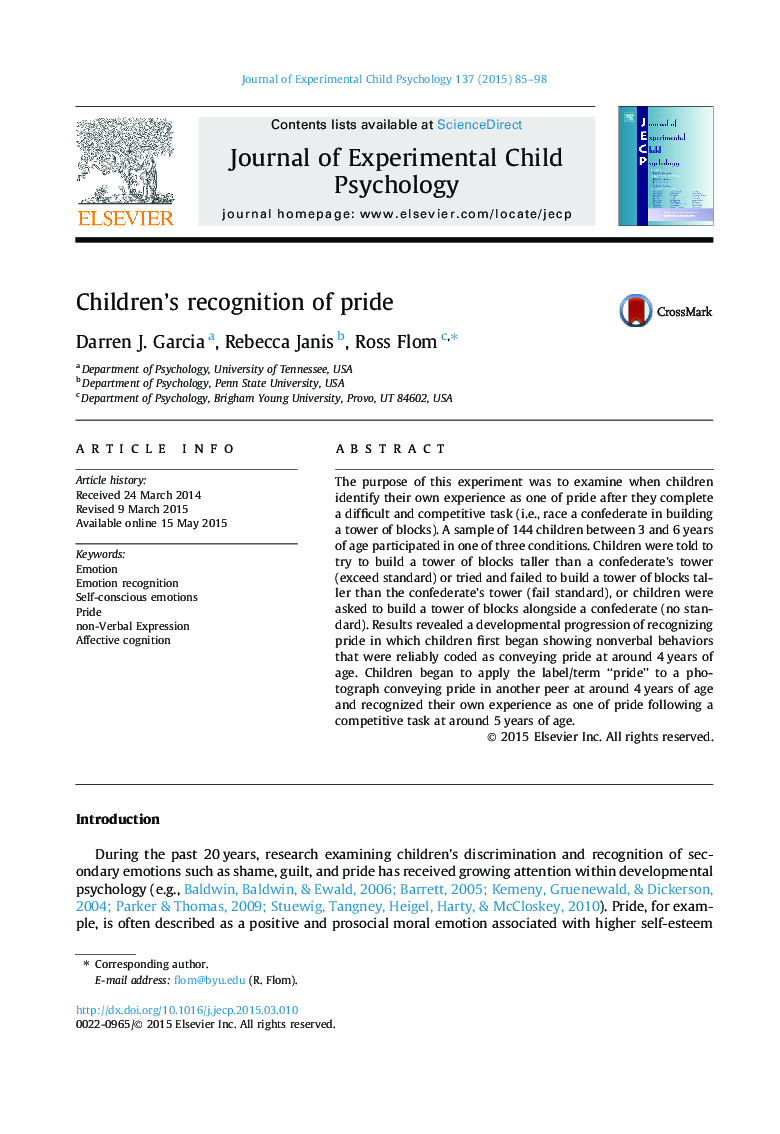| Article ID | Journal | Published Year | Pages | File Type |
|---|---|---|---|---|
| 7275031 | Journal of Experimental Child Psychology | 2015 | 14 Pages |
Abstract
The purpose of this experiment was to examine when children identify their own experience as one of pride after they complete a difficult and competitive task (i.e., race a confederate in building a tower of blocks). A sample of 144 children between 3 and 6Â years of age participated in one of three conditions. Children were told to try to build a tower of blocks taller than a confederate's tower (exceed standard) or tried and failed to build a tower of blocks taller than the confederate's tower (fail standard), or children were asked to build a tower of blocks alongside a confederate (no standard). Results revealed a developmental progression of recognizing pride in which children first began showing nonverbal behaviors that were reliably coded as conveying pride at around 4Â years of age. Children began to apply the label/term “pride” to a photograph conveying pride in another peer at around 4Â years of age and recognized their own experience as one of pride following a competitive task at around 5Â years of age.
Related Topics
Social Sciences and Humanities
Psychology
Developmental and Educational Psychology
Authors
Darren J. Garcia, Rebecca Janis, Ross Flom,
